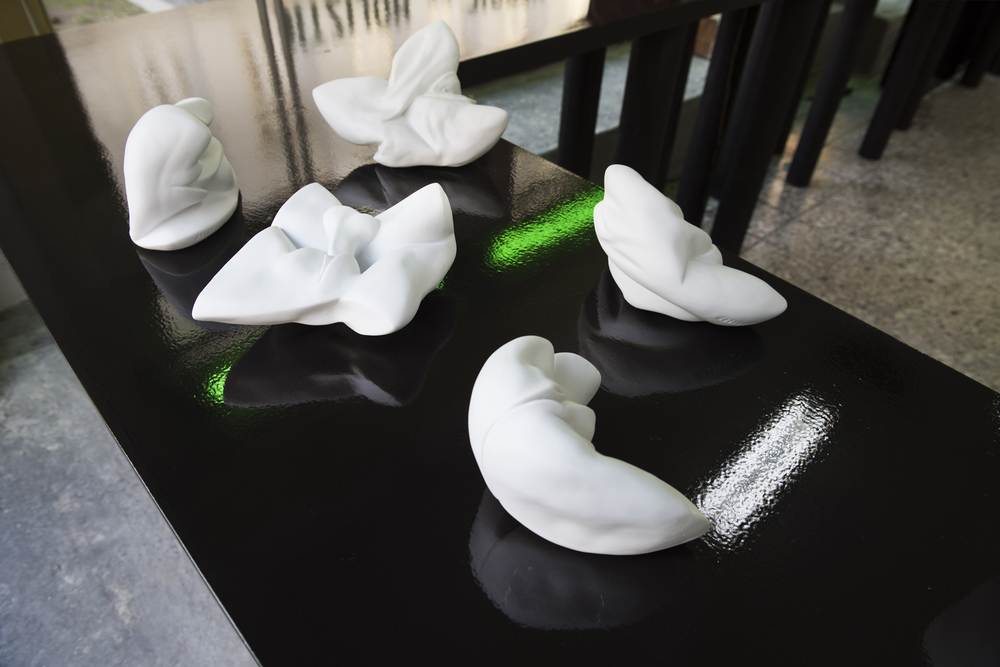
Heroic vs Holistic
Erotic eco-drama
PLATO Office for Art, Ostrava, Czech Republic
16. 11. 17 – 28. 1. 2018
Artists: Barbara Falender, Grzegorz Kowalski, Miyeon Lee, Beny Wagner
Unnatural apparition by Nadja Argyropoulou
Curated by Daniela&Linda Dostálková
Parallel program within Heroic vs Holistic
Lee Castro: I don't have a VISA, but I can make Kimchi
Karol Sienkiewicz: Revealing bodies—Falender Kowalski
Sasha Litvintseva & Beny Wagner: Hero's Tail
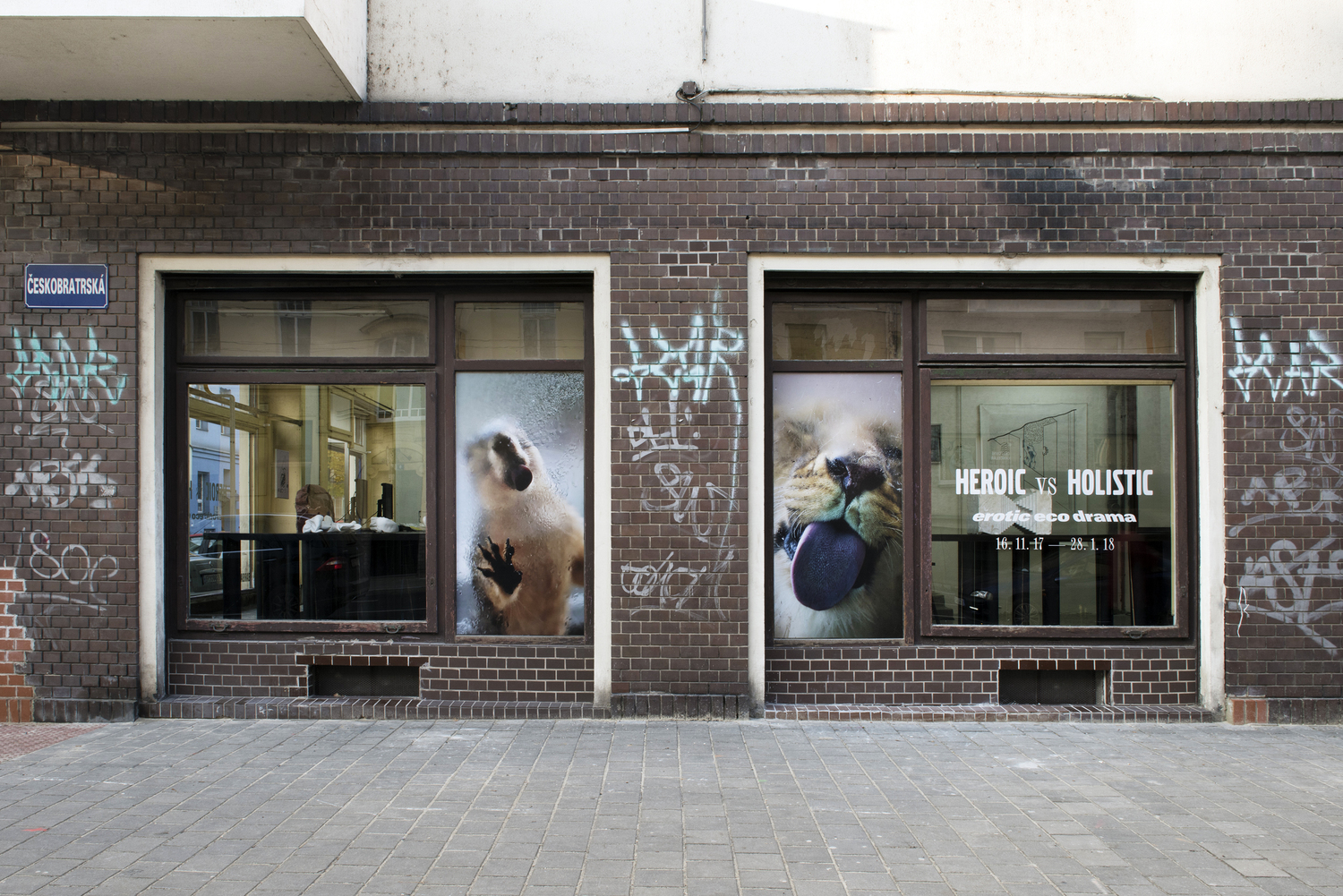
Beny Wagner, Inner Circle, adhesive vinyl color inkjet print on window, dimension variable, 2016.
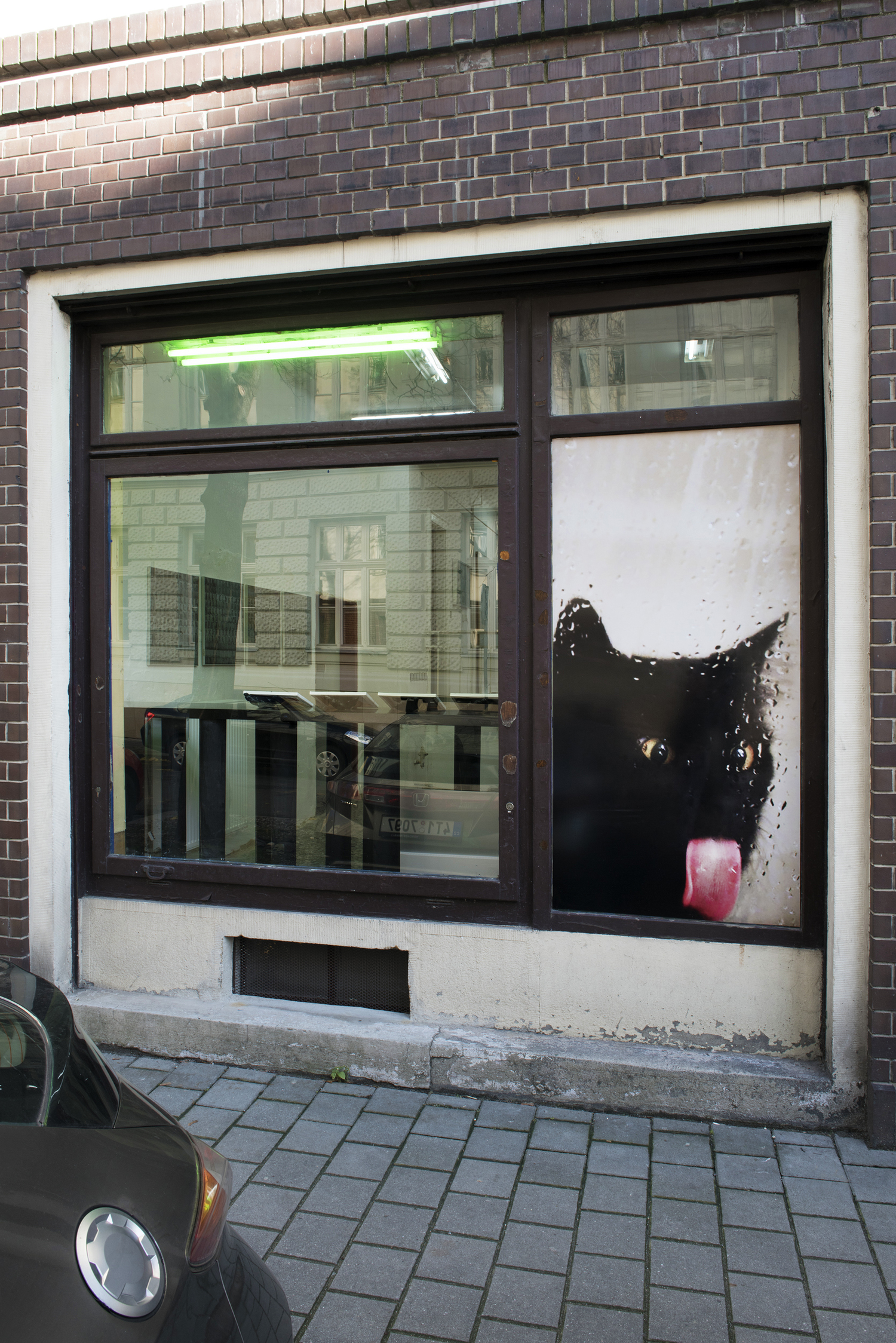
Beny Wagner, Inner Circle, adhesive vinyl color inkjet print on window, dimension variable, 2016.
“Sour grapes. What an expression (on your face). Sour grapes are unexpected and unwanted. You pick a grape, bite through the skin to the fleshy fruit expecting sweetness. Perhaps you anticipate seeds, but more likely not (seedless reigns). Expecting sweetness, you are disappointed by the sour grape. Say “yuck” and spit it out if you can; if not, grimace and swallow. The grape is rejected. Is it bad? Or just not what you wanted? Not what you paid for? Were you deceived by the unblemished appearance of the fruit? Can you trust the next one?
Sour grapes: the expression refers to someone who is dissatisfied, holds a grudge, doesn’t have a sense of humor, won’t go along with the crowd, a sore loser. Sour is crabby, sullen, surly, as well as acerbic. Adjectives to put down, as well as to describe. Adjectives used to describe feminists, troublemakers.
Sour grapes is an expression to describe something that leaves a bad taste in your mouth (another expression), in someone’s mouth. The question that no one asks is, how does the grape feel? How does being sour feel? How does being spat out feel? How does being rapidly gulped feel? Does the grape feel rejected or glad to get away? Really now, does the grape feel at all? Hey, are any grapes reading this text? Grapes, get together.”1
Today, ethical reflection on the value of nature is regarded as a sports discipline. Ecologists compete in how to introduce values with a clear hierarchy. They create an autonomous construct, different from our personal desires and experiences; a hypothetical machine designed to control. Feelings have nothing to do here; even worse, they are perceived as ridiculous obstacles easily interfering with a perfectly thought-out machinery. Arguments that are not based on facts, but on love or compassion, are irrelevant. The heroic mind has managed to look, but not see, act but not feel, think but not know. Holistic people adopt a different standpoint to the current crisis of nature. Their opinions do not have a competitive essence, we can rather call them stories that model a fluid portrait of the world we live in. This image is not based on a unified view. It is a stream that brings the voices of people emerging from different places and life circumstances. They emphasize the metaphorical role of nature settled in abstract universal principles, and replace the dictates of heroic ethics with the imagery of the world’s mindscape. Holism is defined as a theory establishing the organisation of the world on the existence of a whole, while heroic ethics is characterized by isolated action.
Introduced in the form of an erotic eco-drama, the exhibition Heroic vs. Holistic offers a post-romantic view of nature from the point of view of the two ethics mutually permeating one another.
Daniela&Linda Dostálková
1 Ellen O'Loughlin, Questioning Sour Grapes: Ecofeminism and the United Farm Workers Grape Boycott, 1993.
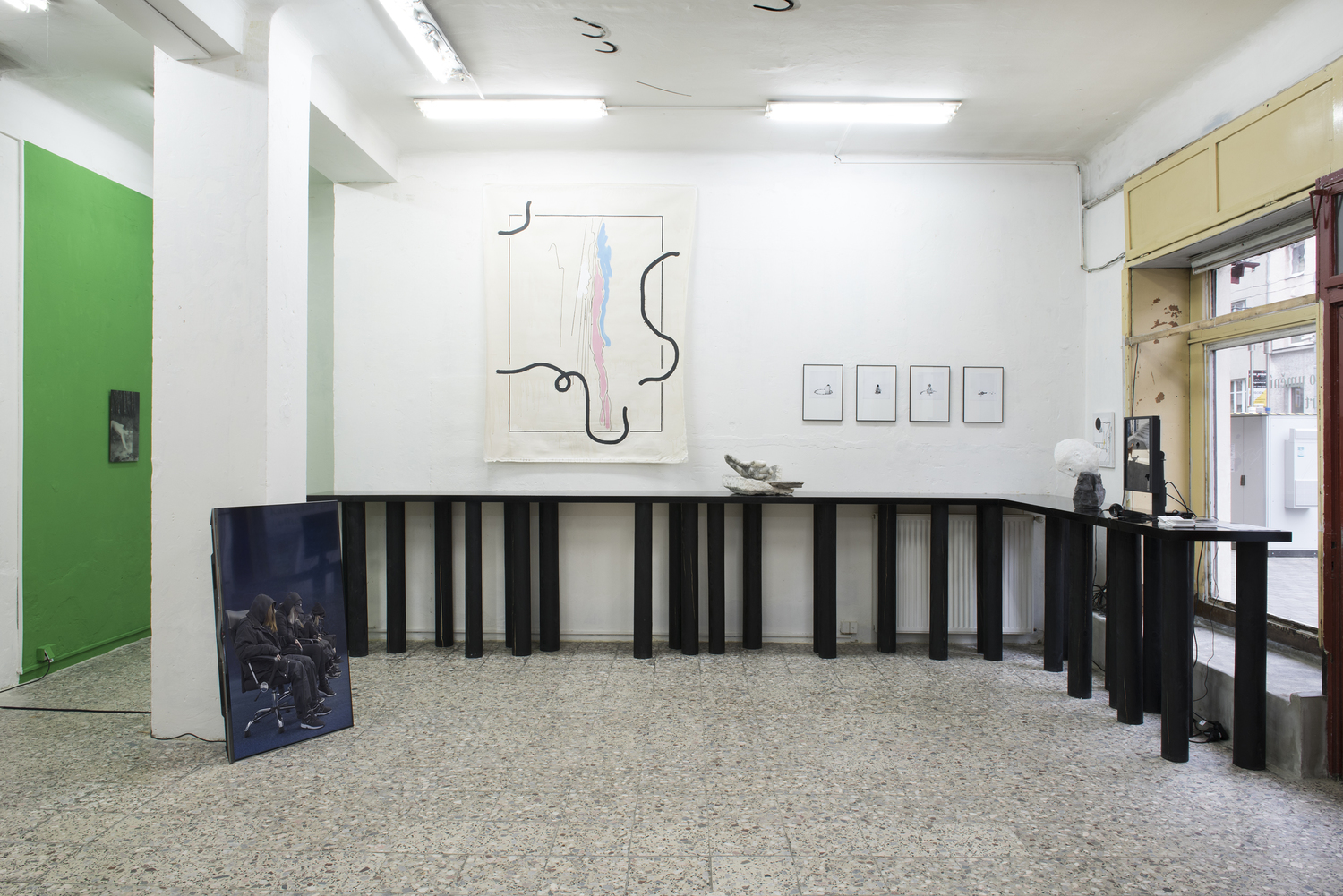
Heroic vs Holistic, installation view, Plato, 2017.

Heroic vs Holistic, installation view, Plato, 2017.
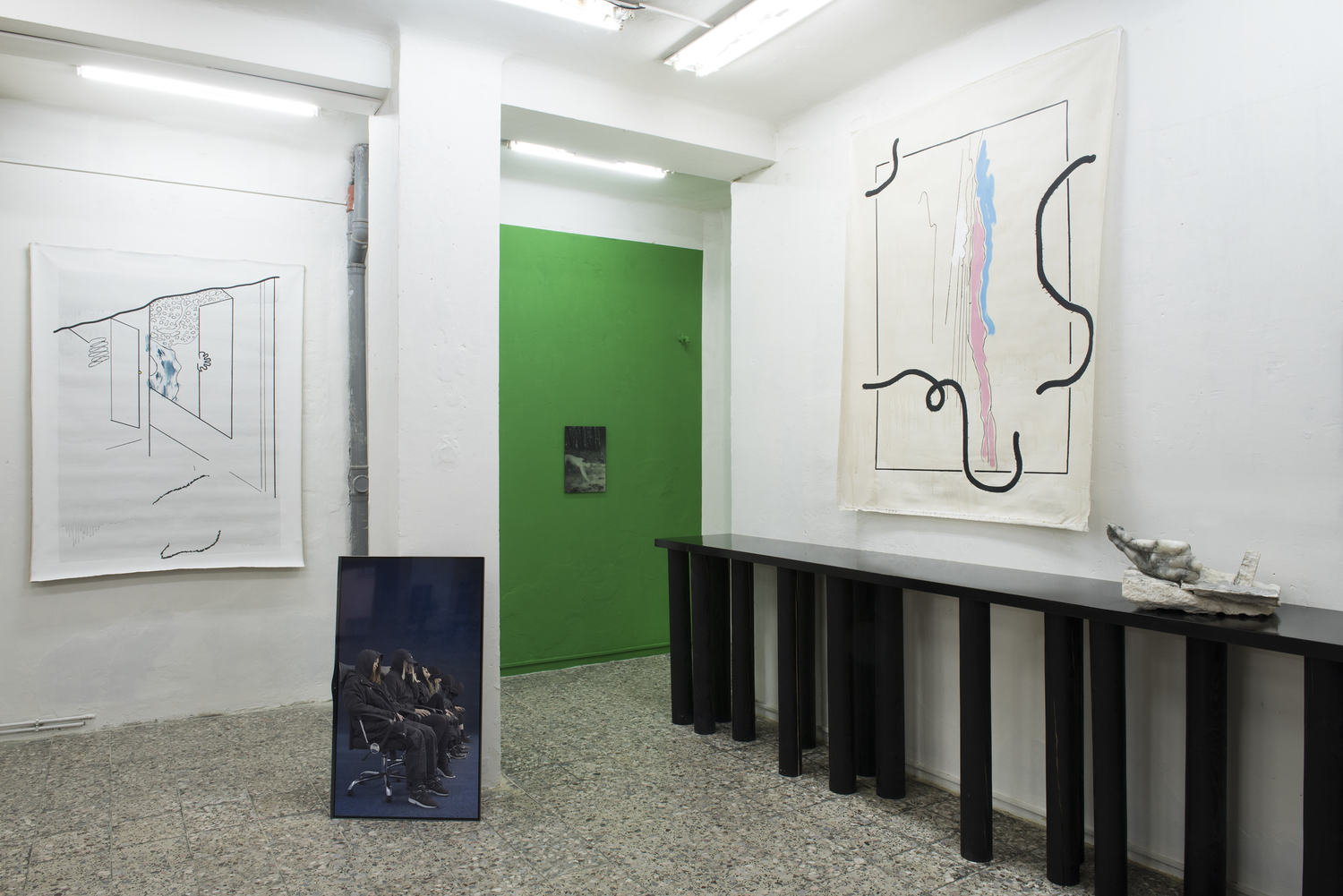
Heroic vs Holistic, installation view, Plato, 2017.
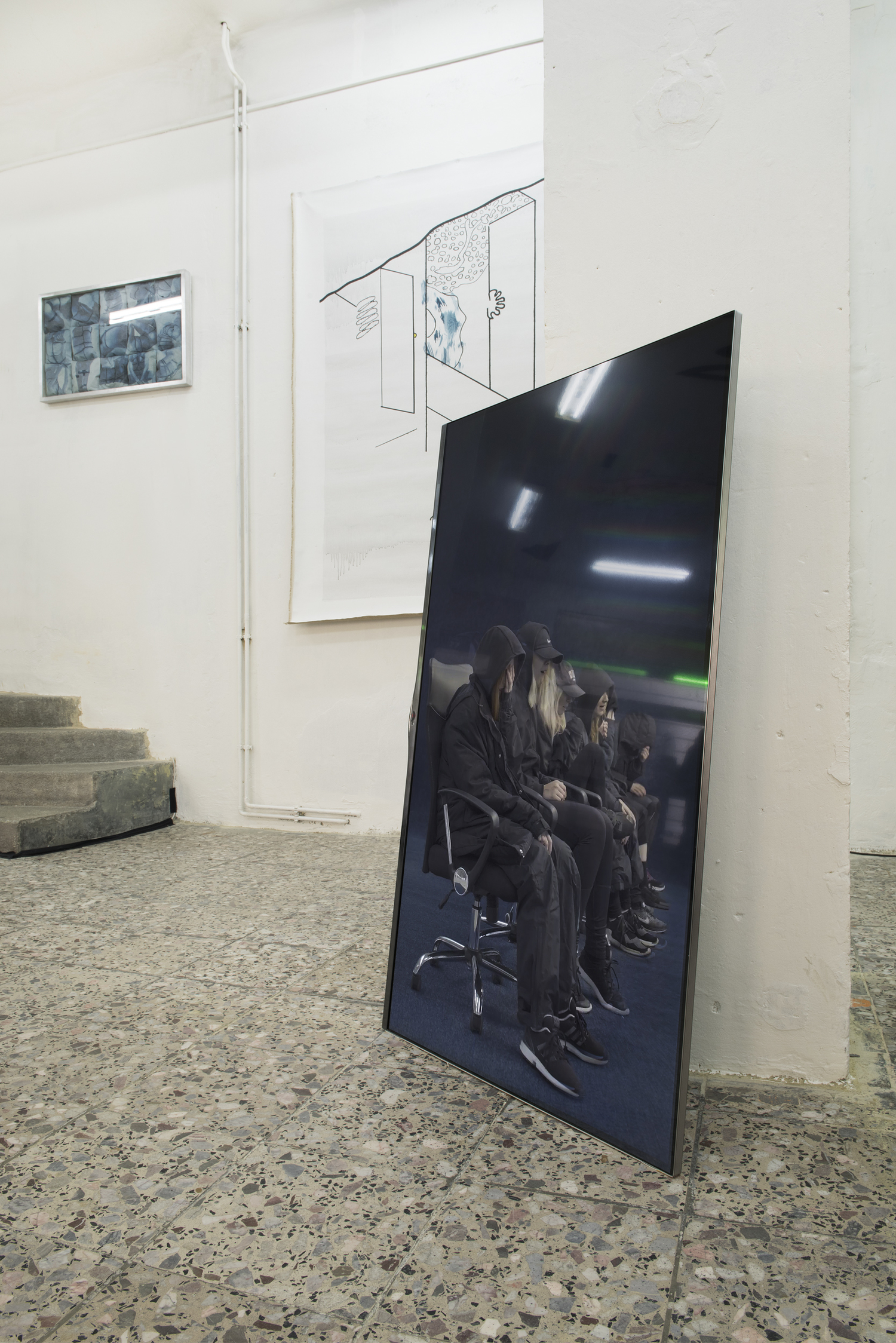
Grzegorz Kowalski, Blue Devotional Articles, photographic object, 1972, mixed media (metal, fabric, wood), 54 x 87, 5 x 5 cm; Miyeon Lee, Blown Up Drawing, 2016, acrylic and liquid graphite on linen, 150 x 200 cm; Daniela & Linda Dostálková, Acid Rain, 2017, full HD video, 05 min 04 sec.
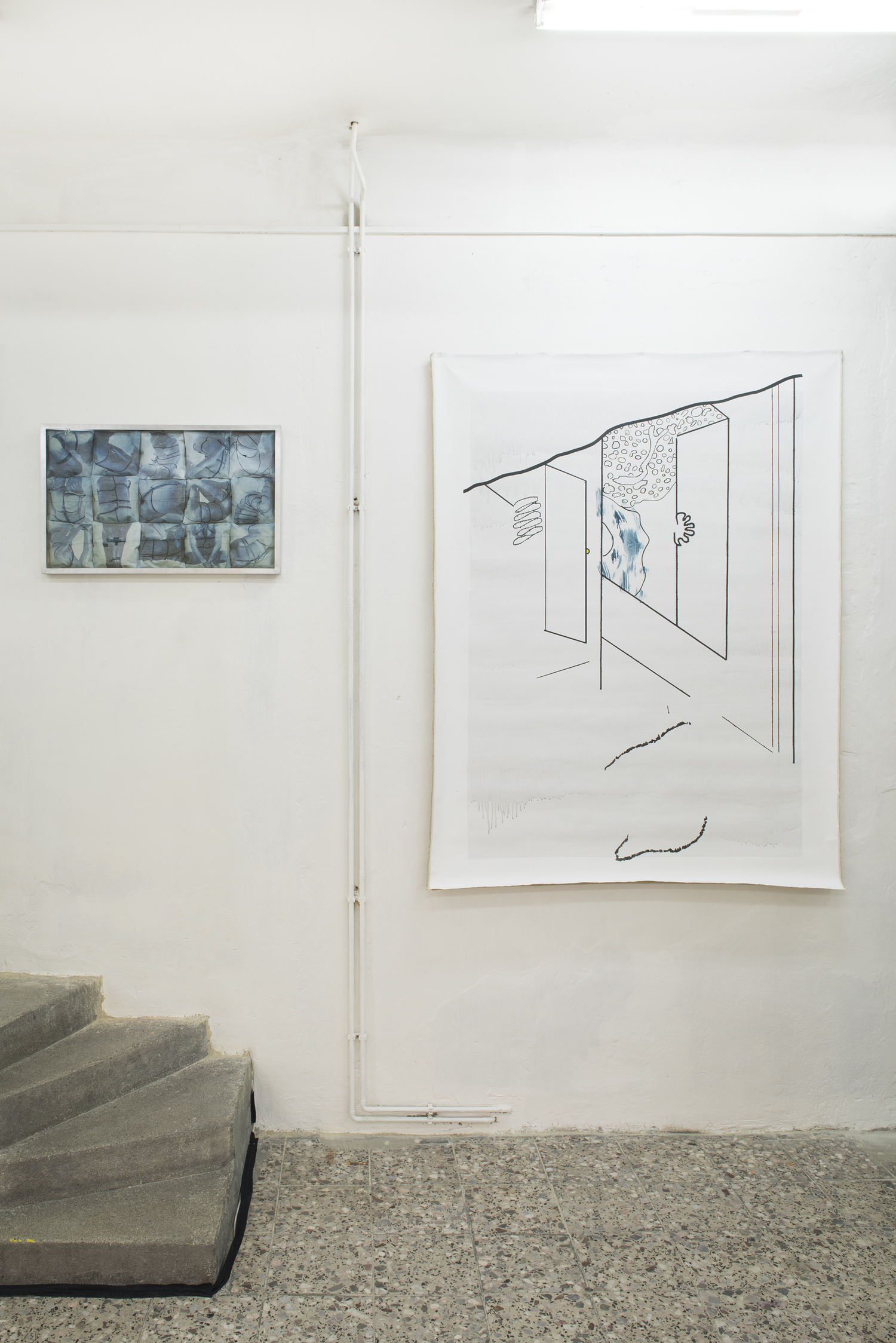
Grzegorz Kowalski, Blue Devotional Articles, photographic object, 1972, mixed media (metal, fabric, wood), 54 x 87, 5 x 5 cm; Miyeon Lee, Blown Up Drawing, 2016, acrylic and liquid graphite on linen, 150 x 200 cm.
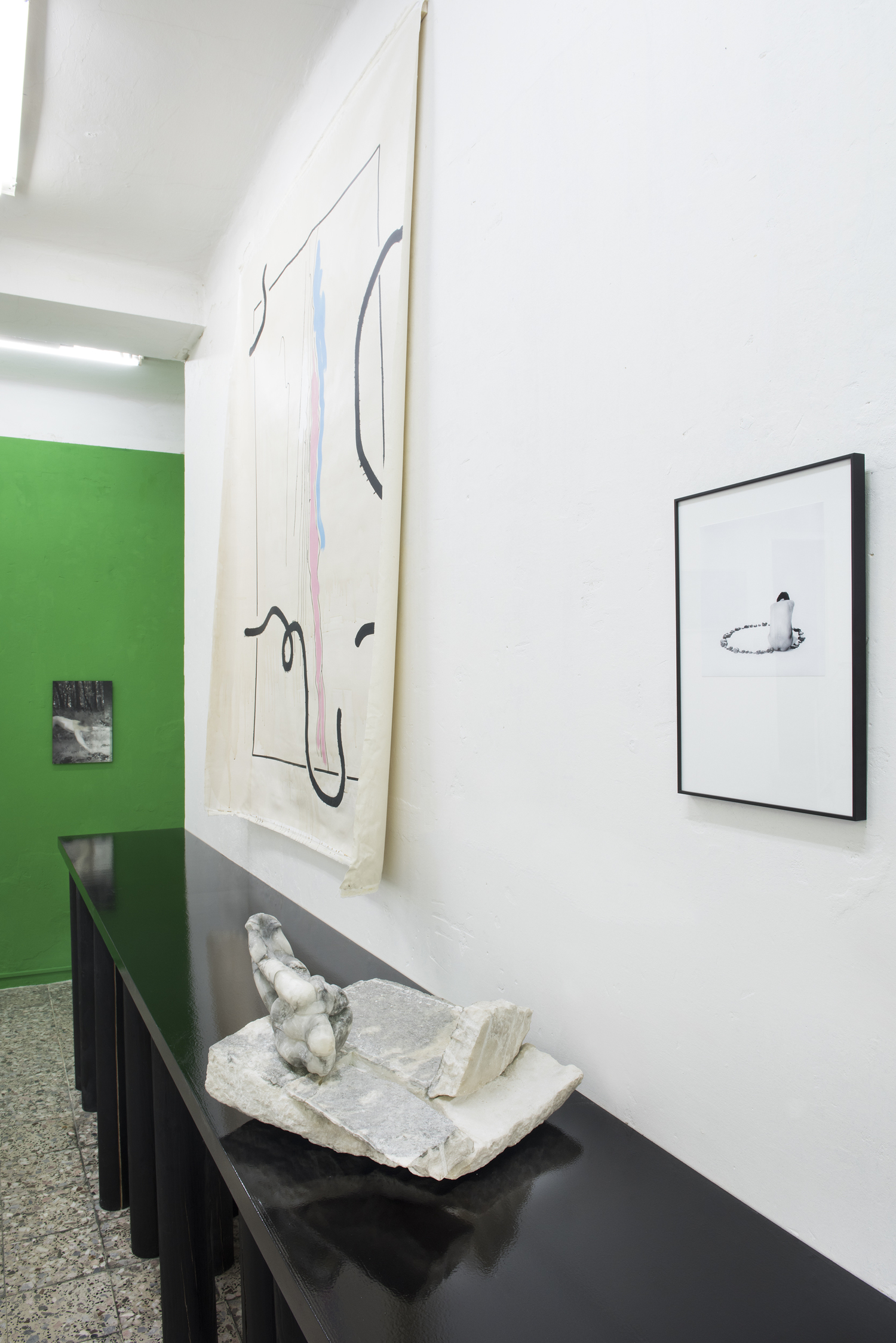
Heroic vs Holistic, installation view, Plato, 2017.

Beny Wagner, Appartions, 2017, UV print on mirror, each 36 x 52 cm.
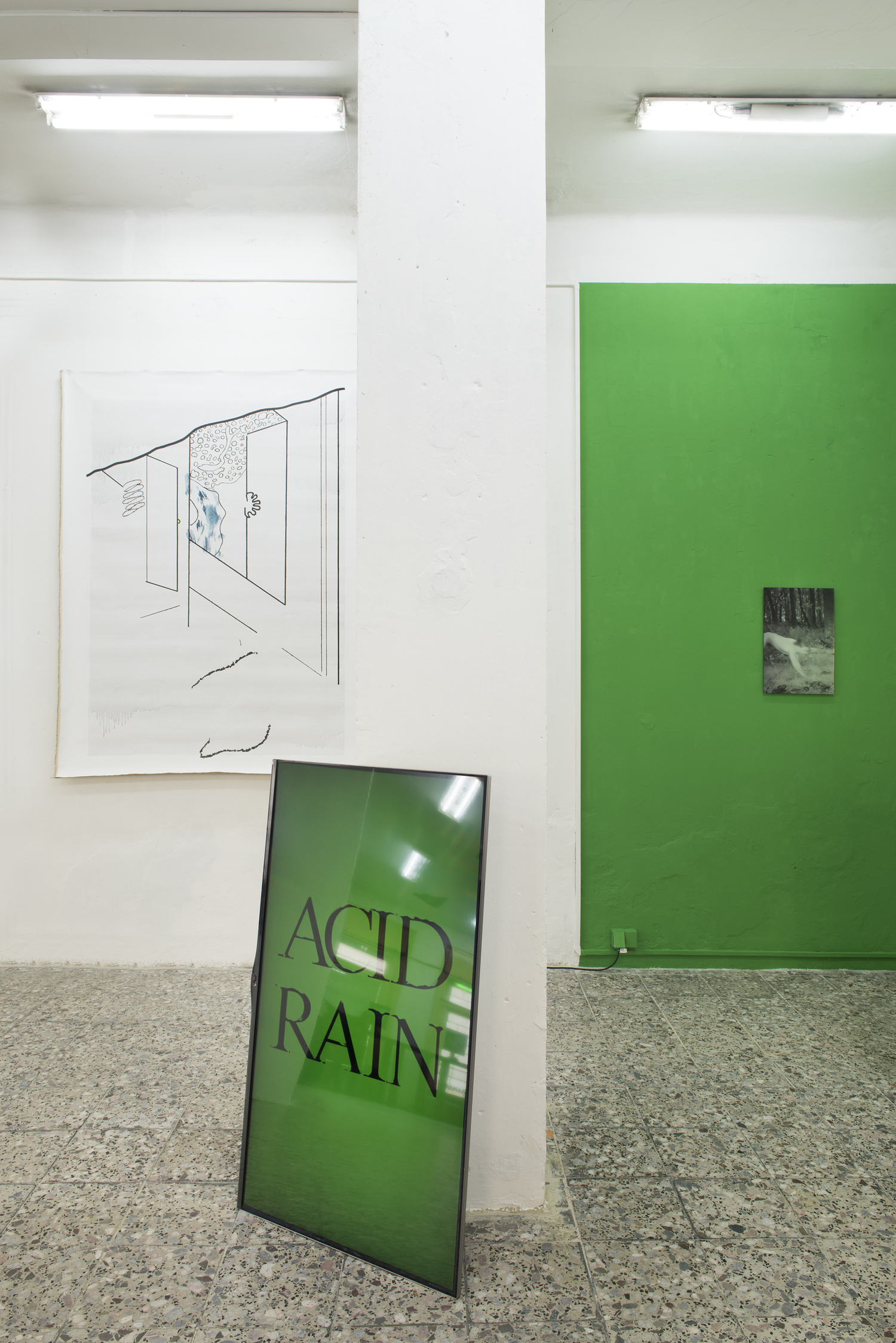
Miyeon Lee, Blown Up Drawing, 2016, acrylic and liquid graphite on linen, 150 x 200 cm; Daniela & Linda Dostálková, Acid Rain, 2017, full HD video, 05 min 04 sec; Beny Wagner, Appartions, 2017, UV print on mirror, each 36 x 52 cm.
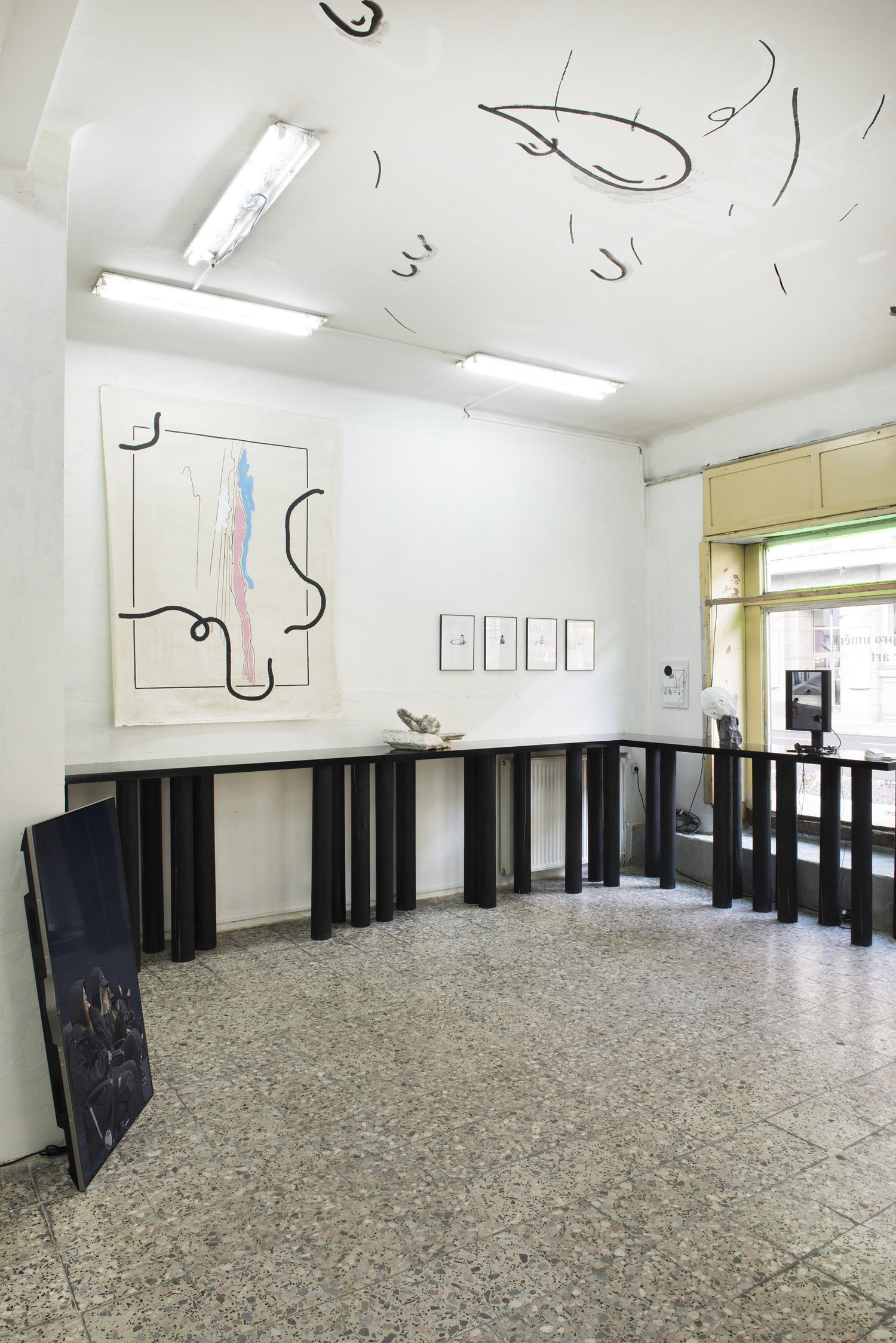
Heroic vs Holistic, installation view, Plato, 2017.
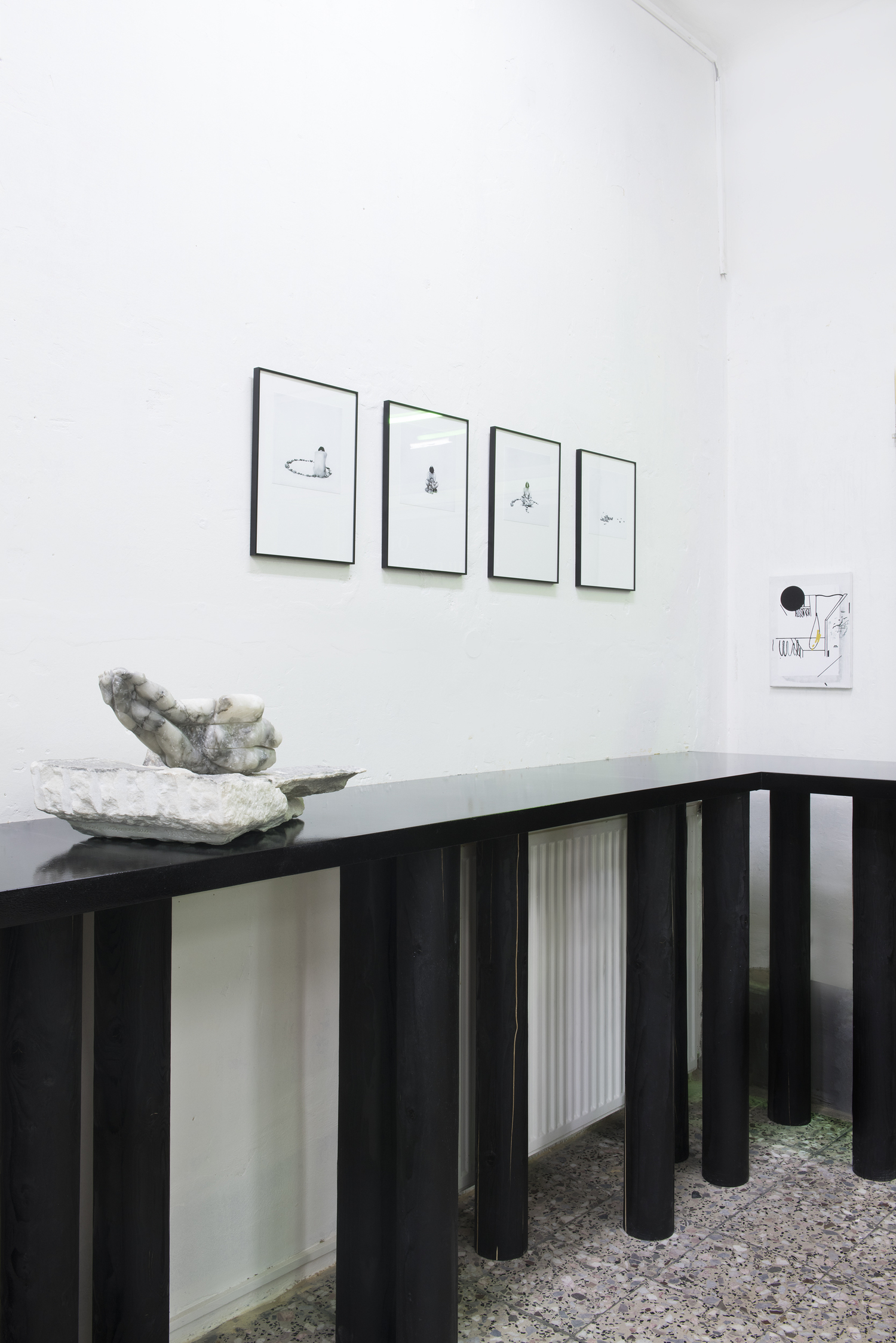
Barbara Falender, Adio Kerida, 1977–2012, alabaster, marble, 28 x 48 x 43 cm; Grzegorz Kowalski, Oskar Desage–Schmidt, 1974, photography, each 30 x 42 cm; Miyeon Lee, Untitled, 2016, liquid graphite on canvas, 30 x 40 cm.
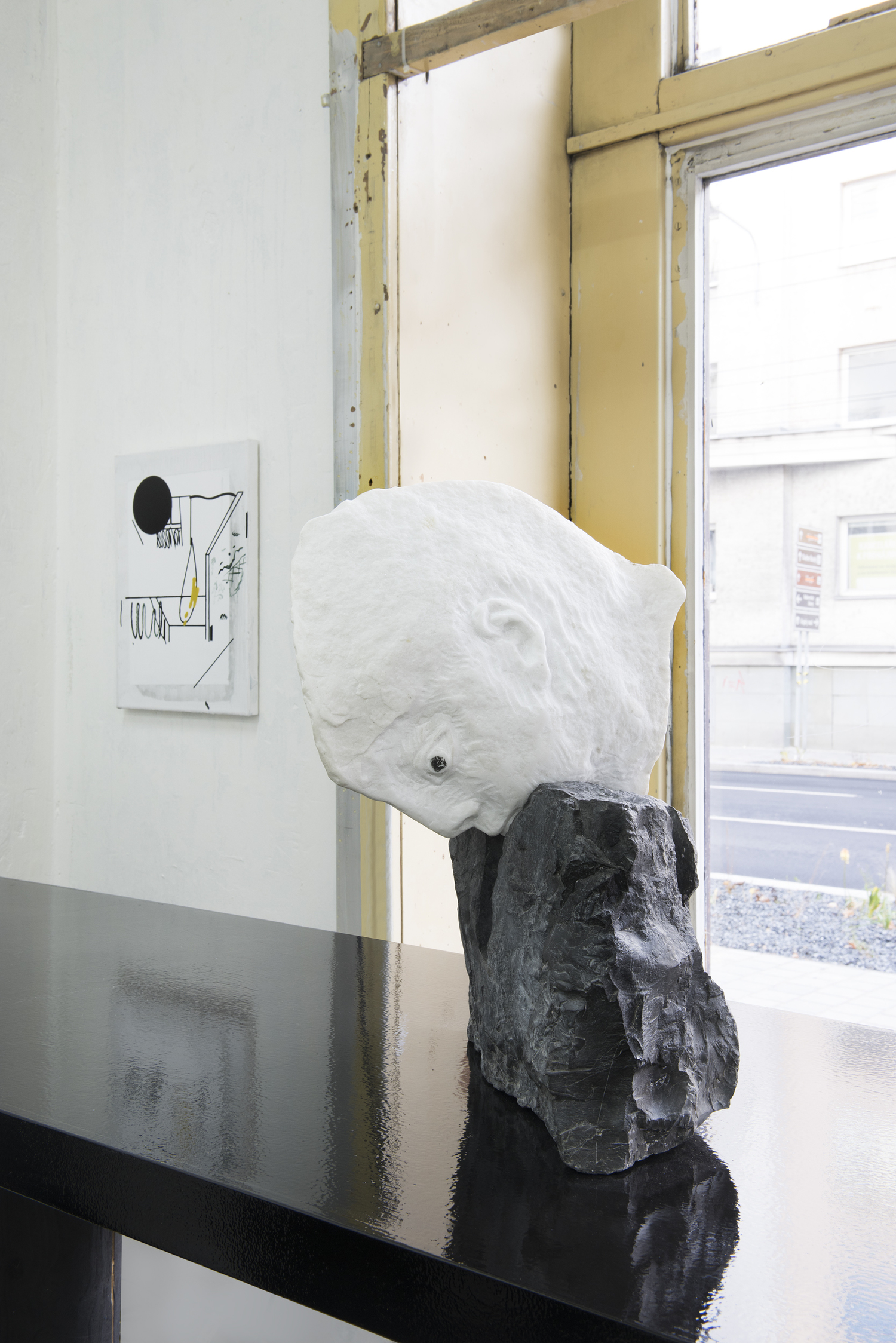
Miyeon Lee, Untitled, 2016, liquid graphite on canvas, 30 x 40 cm; Barbara Falender, Abandoned (Elaine), 2012, marble, 43 x 39 x 30 cm.

Heroic vs Holistic, installation view, Plato, 2017.
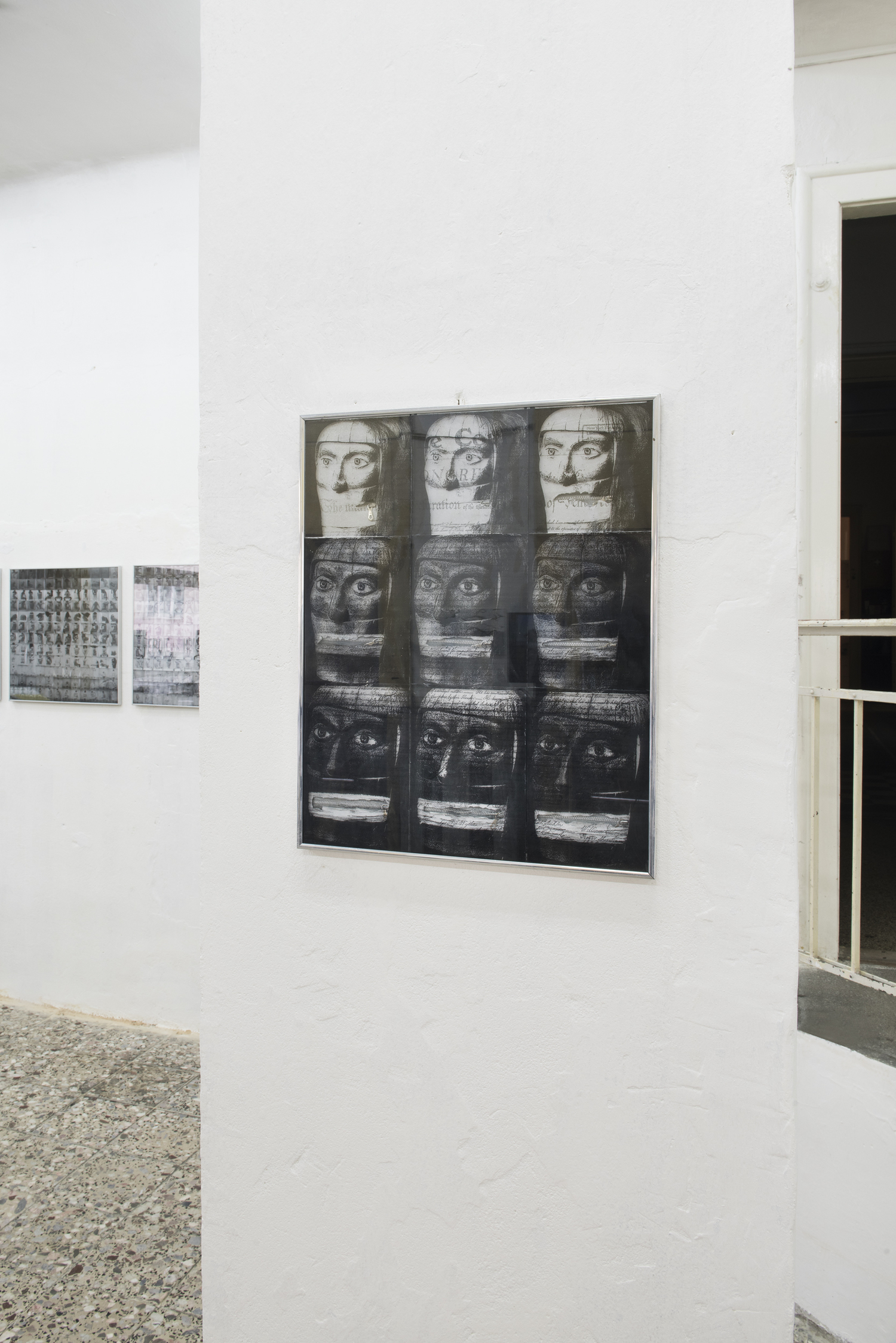
Grzegorz Kowalski, The Courier I, from series The American Cliche, 1970–1997, photography collage, 50, 5 x 40 cm.

Heroic vs Holistic, installation view, Plato, 2017.

Heroic vs Holistic, installation view, Plato, 2017.

Barbara Falender, Hourglass, 2005, marble, 57 x 35 x 28 cm.
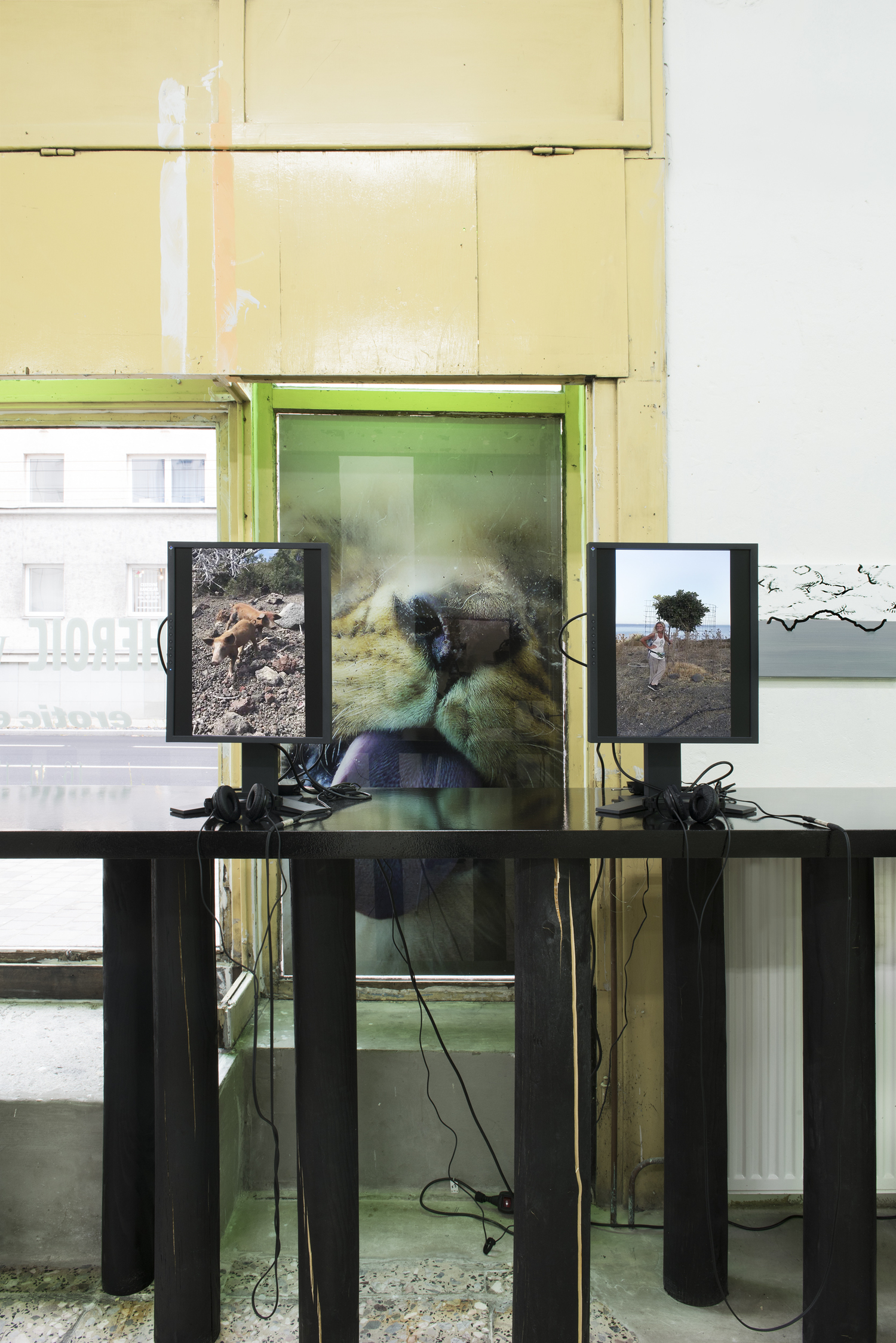
Daniela & Linda Dostálková, Heroic vs Holistic II, 2017, full HD video, 05 min 20 sec; Heroic vs. Holistic III, 2017, full HD video, 02 min 53 sec; Beny Wagner, Inner Circle, adhesive vinyl color inkjet print on window, dimension variable, 2016.

Heroic vs Holistic, installation view, Plato, 2017.

Heroic vs Holistic, installation view, Plato, 2017.
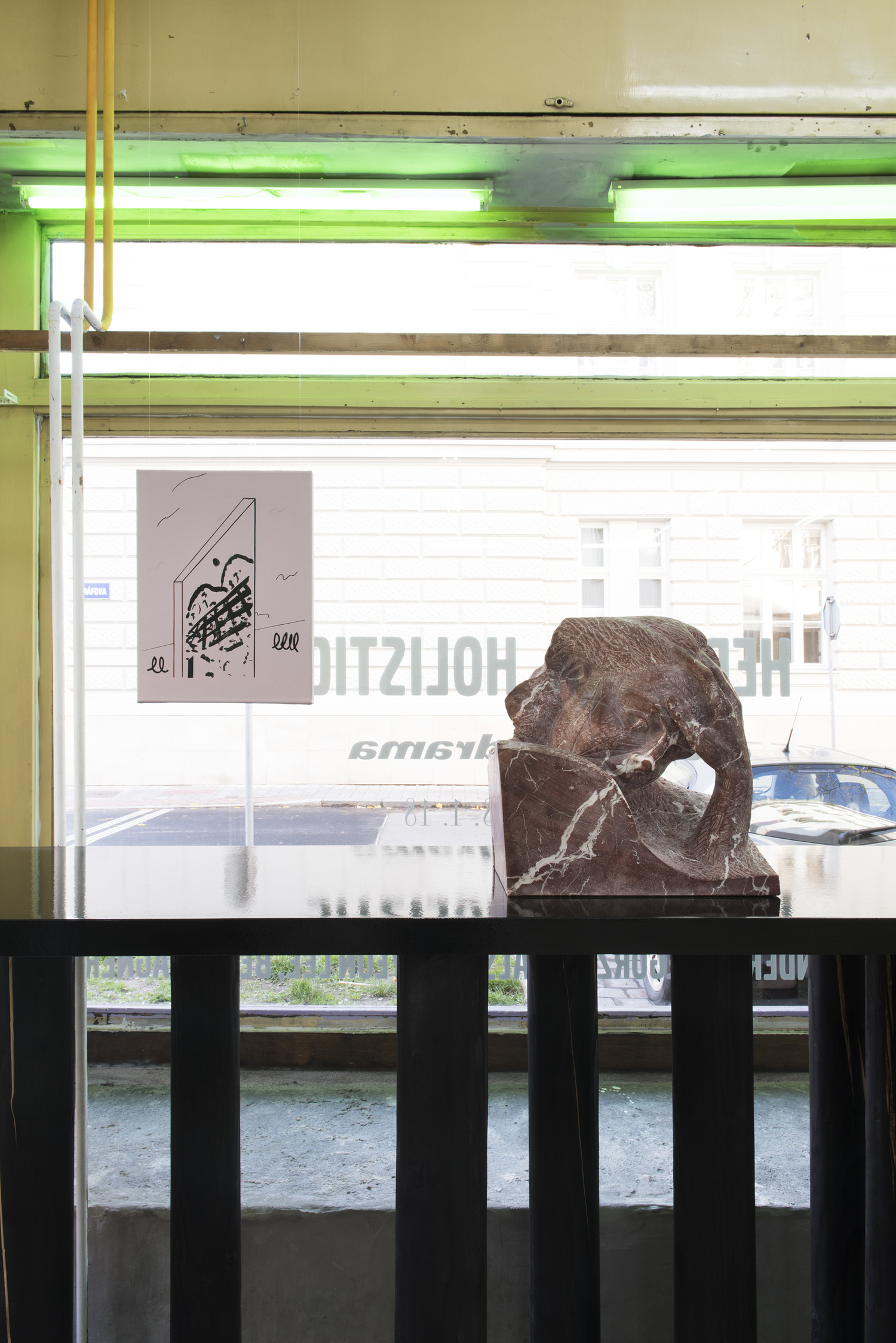
Miyeon Lee, Monument for a Lost Land, 2016, acrylic on canvas, 30 x 40 cm; Barbara Falender, Selfportrait, 2016, marble, 43 x 40 x 32 cm.

Heroic vs Holistic, installation view, Plato, 2017.
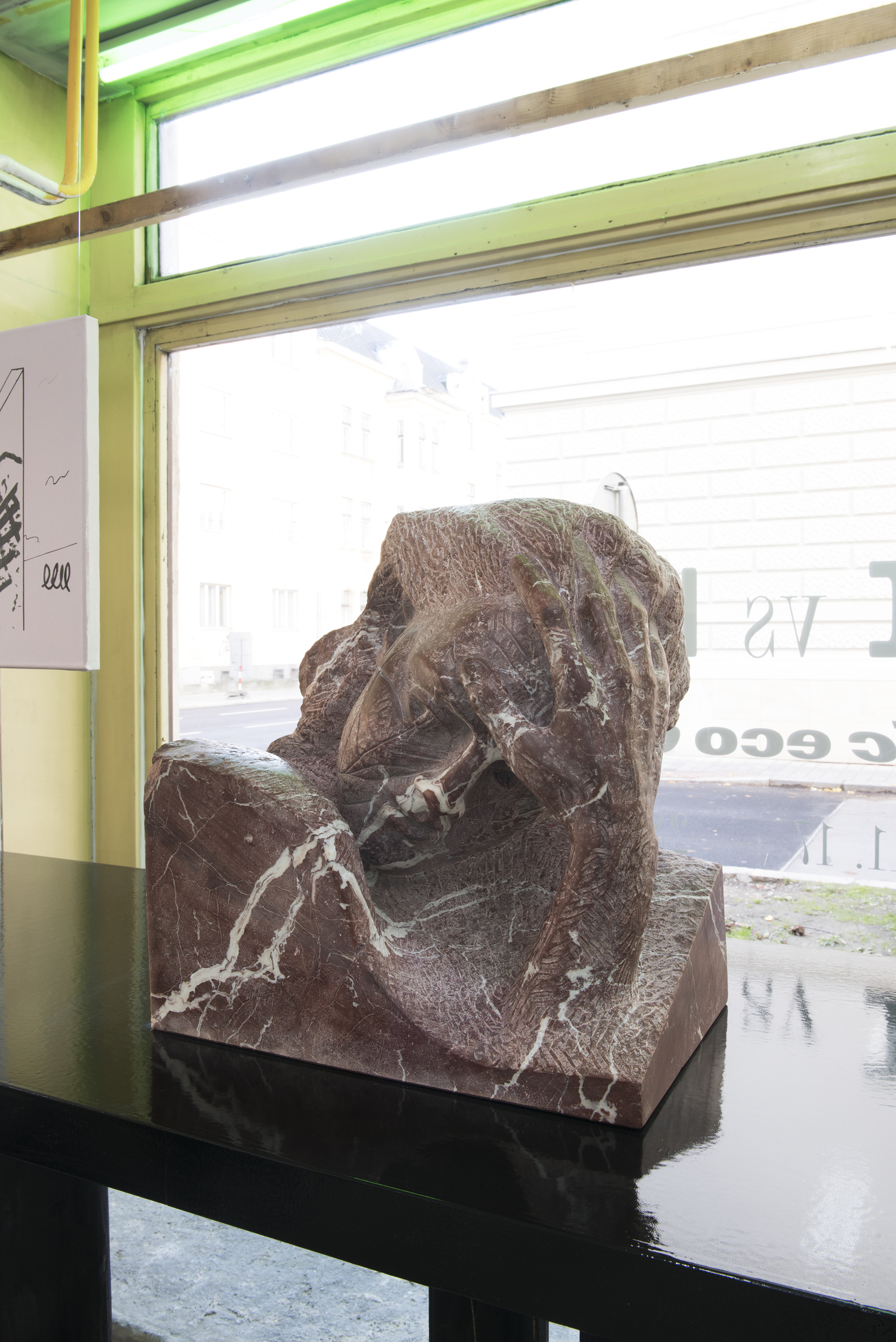
Barbara Falender, Selfportrait, 2016, marble, 43 x 40 x 32 cm.

Heroic vs Holistic, installation view, Plato, 2017.
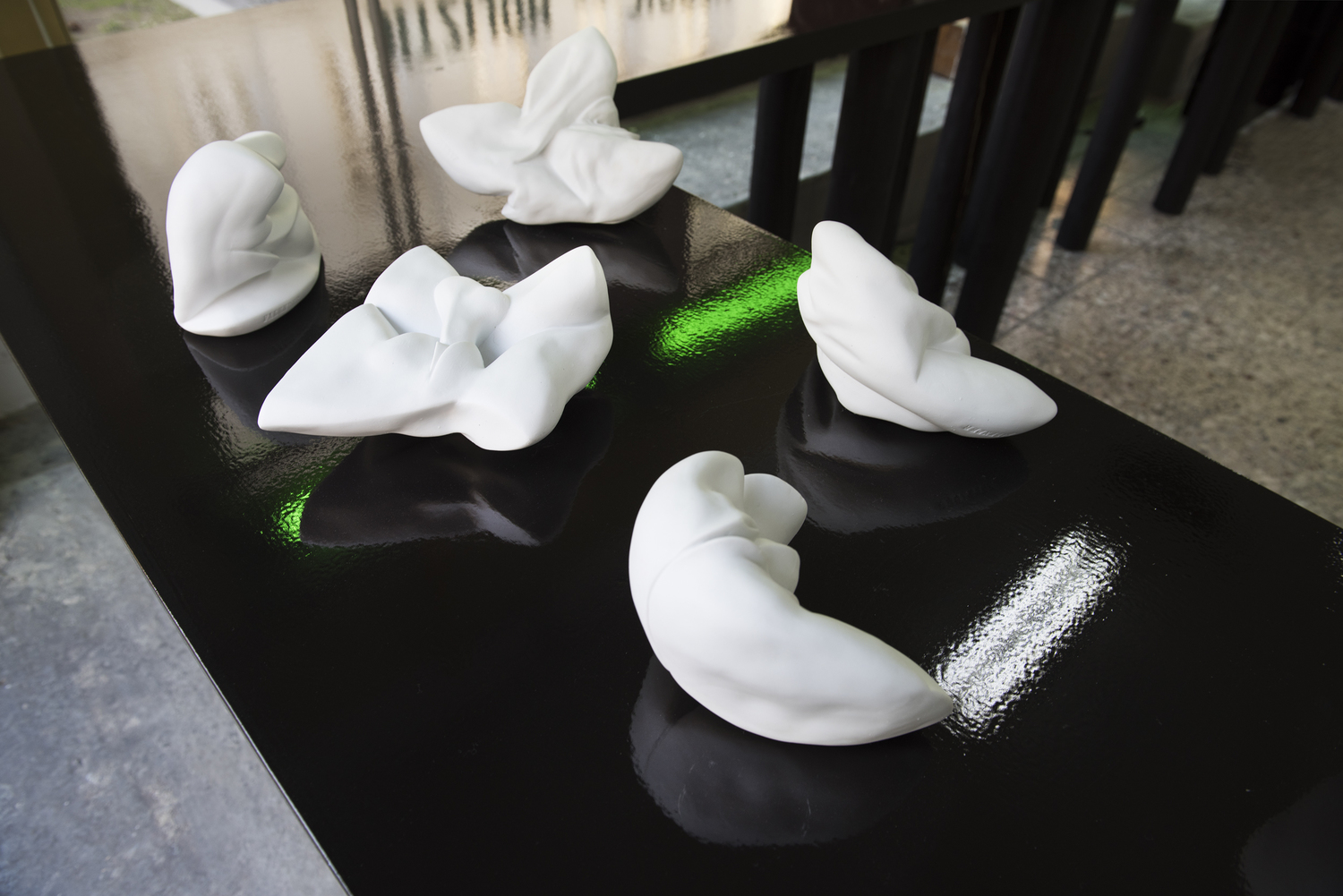
Barbara Falender, Erotic Pillows, 1973–2006, bisquit, each approx. 20 x 20 x 10 cm.

Heroic vs Holistic, installation view, Plato, 2017.

Beny Wagner, Inner Circle, adhesive vinyl color inkjet print on window, dimension variable, 2016; Beny Wagner, We’re All Here, 2016, full HD video, 11 min 40 sec; Miyeon Lee, Absence of Mountains, series, 2017, acrylic on canvas, each 20 x 30 cm.
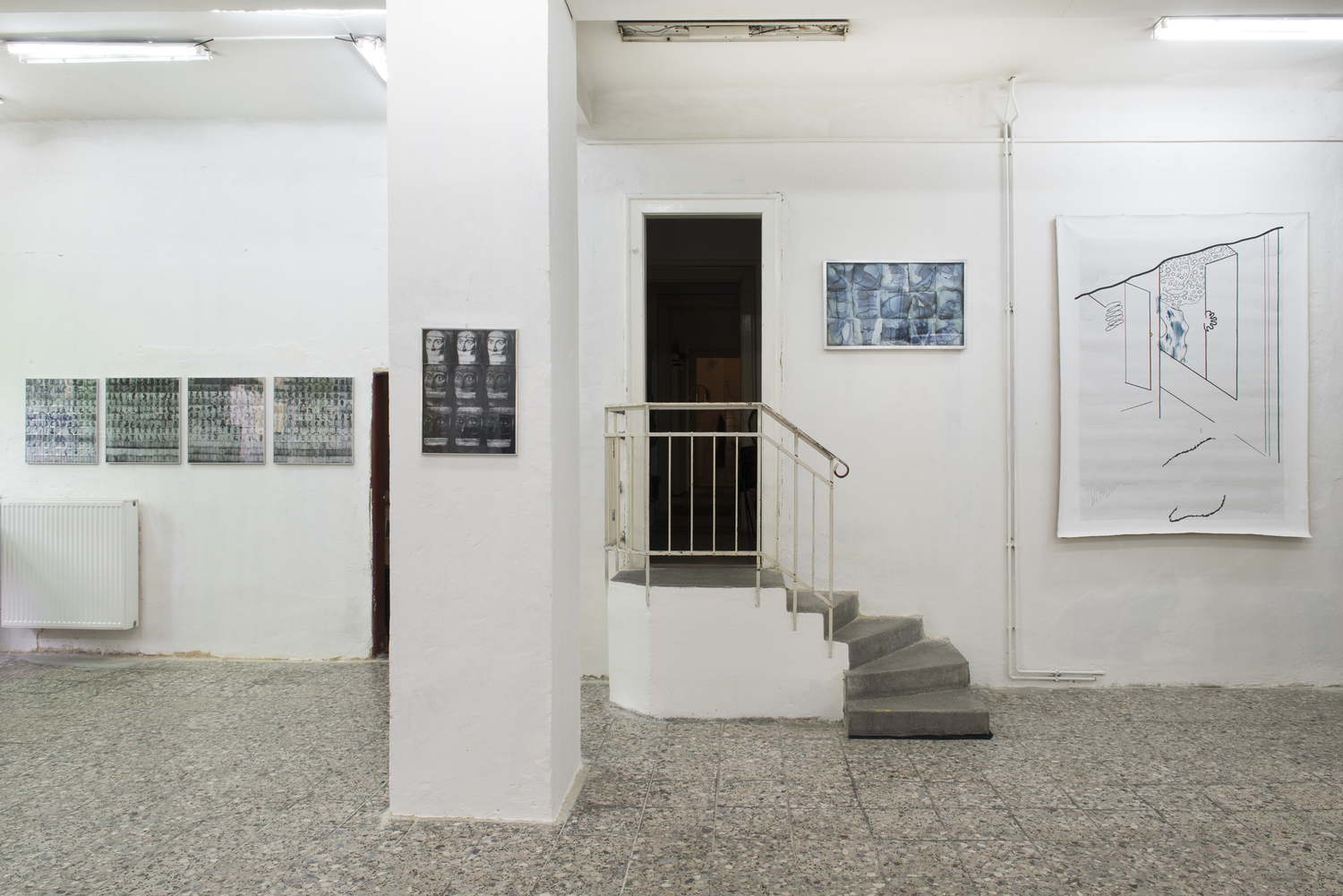
Heroic vs Holistic, installation view, Plato, 2017.
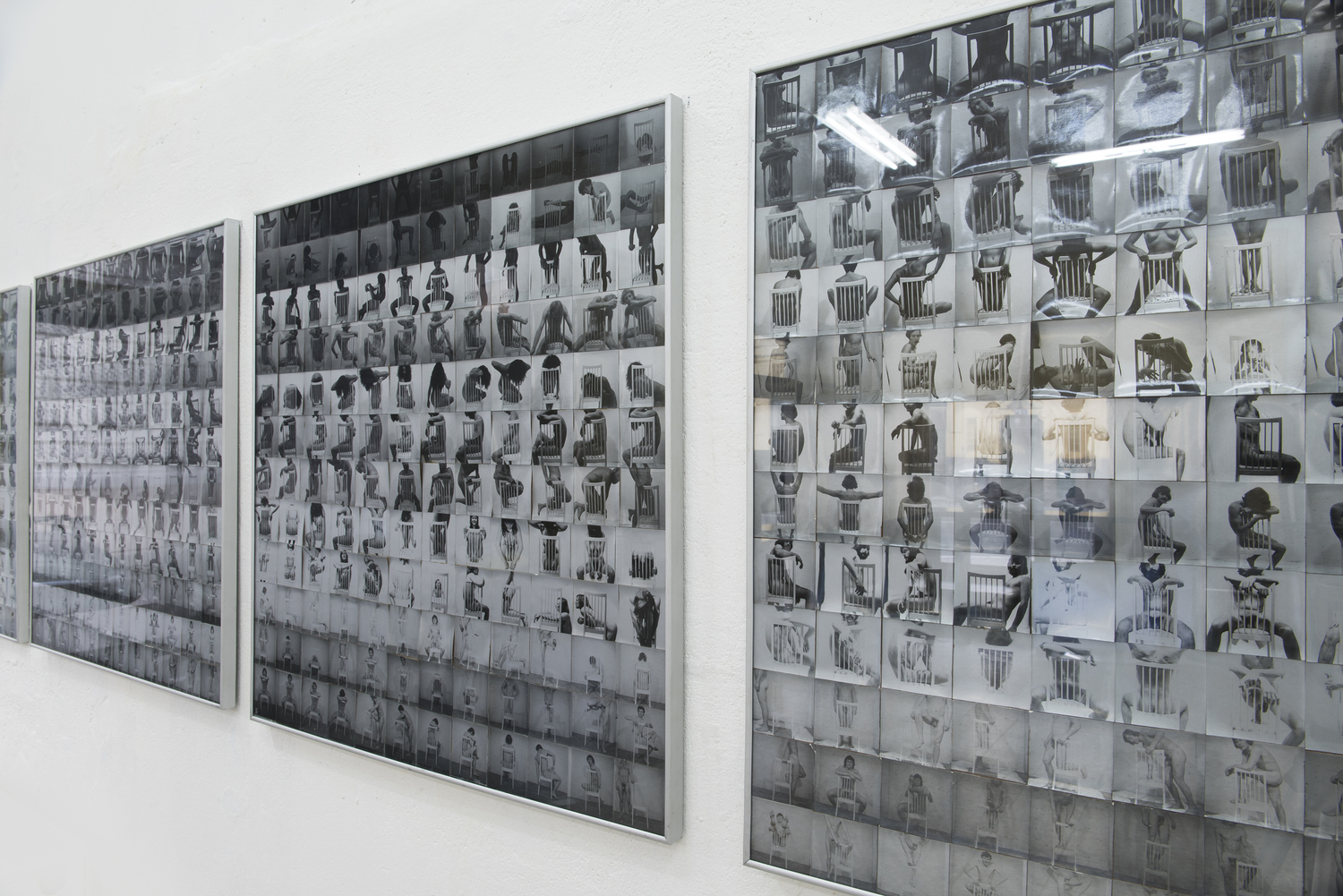
Grzegorz Kowalski, Chair, 1975, photography collage, each 60 x 60 cm.